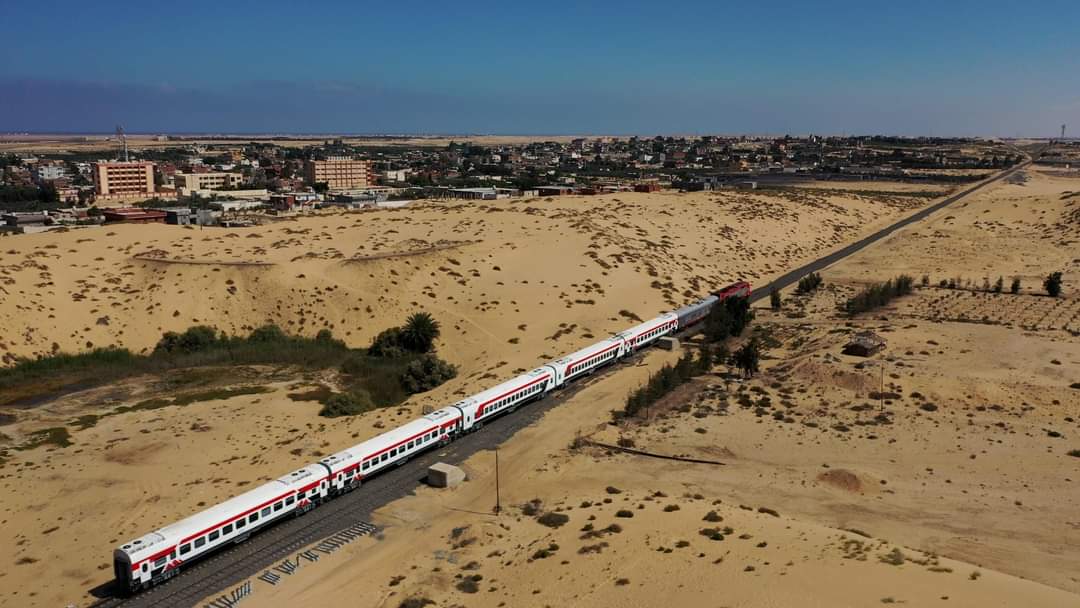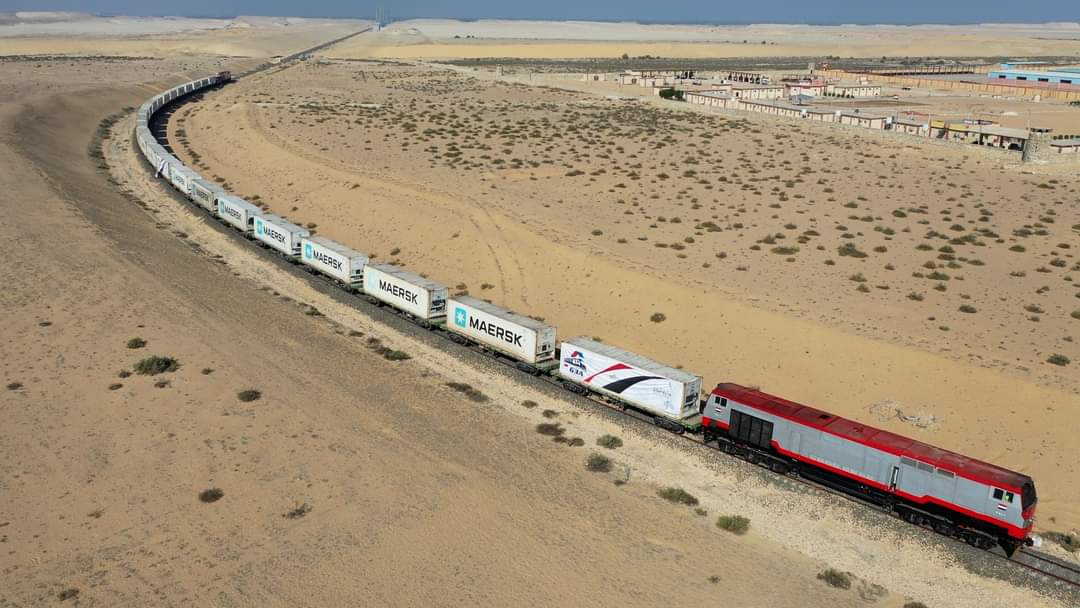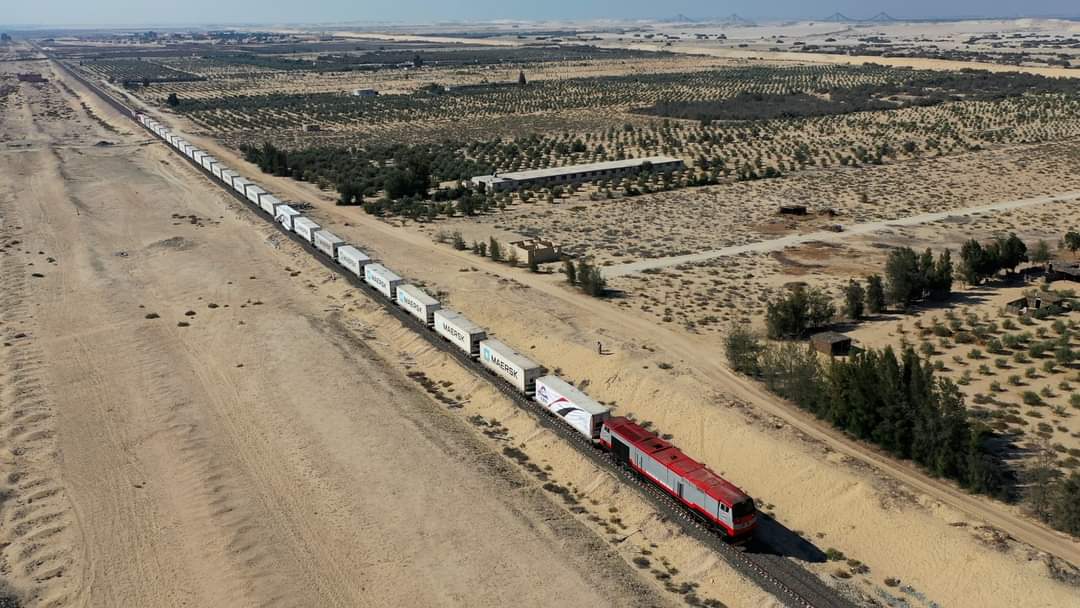For the first time in over five decades, passenger trains are set to resum operations in Sinai, with Egypt launching the trial phase of the Al-Fardan–Bir Al-Abd railway line on Monday.
Minister of Industry and Transport Kamel El-Wazir inaugurated the trial operation by riding the train on the 100-kilometer route from Sheikh Zayed Station to Bir Al-Abd Station in North Sinai. The event was attended by local officials, including the governors of North Sinai and Ismailia, as well as tribal sheikhs from the region.
The Fardan-Bir Al-Abd line, which has been under renovation, saw the renewal of 22 kilometers of track and the rehabilitation of 64 kilometers. Additionally, 14 kilometers of old rails were restored. The transport ministry has also revamped Bir Al-Abd Station and restored services at other stations, including Qantara East, Galbana, Rummana, and Balouza.
Boosting Connectivity and Development in Sinai
Minister El-Wazir highlighted that the relaunch of passenger rail services would enhance the movement of people and goods between Sinai and other Egyptian governorates, supporting economic growth and development in the region.

The reopening of the railway line is part of a broader project to rehabilitate, develop, and construct a 500-kilometer network connecting Fardan, East Port Said, Bir Al-Abd, Arish, and Taba. This network is integral to the new Arish-Taba integrated logistics corridor, aimed at improving connectivity between the Arish seaport and the Taba land crossing. It also serves as a vital link for transporting goods between factories and ports, bolstering both domestic and export activities.

Strategic Vision for Sinai’s Development
Resuming railway services in Sinai is central to Egypt’s long-term plan for regional development. By linking key industrial and mining areas with major seaports, the project aims to strengthen the region’s role in Egypt’s economic framework. The government’s investment in this infrastructure also aligns with its Vision 2030, which prioritizes sustainable development and strategic use of natural resources.
The transport ministry emphasized that the upgraded rail line would not only serve residents and businesses in North Sinai but also attract investment and promote tourism in the region’s historic and natural sites. The new connectivity aims to foster economic activity, improve access to remote areas, and support ongoing projects in the Sinai Peninsula.
The relaunch of the Fardan-Bir Al-Abd railway line is accompanied by a broader government push to develop Sinai and the Suez Canal cities. Over the past decade, Egypt has directed EGP 530.5 billion in investments to the region, according to the Ministry of Planning, Economic Development, and International Cooperation. These investments, spanning from FY2014/2015 to FY2024/2025, focus on infrastructure, industry, and community development, reflecting Sinai’s strategic importance to Egypt’s national development.
Minister Rania Al-Mashat, head of the Ministry of Planning, emphasized that the Sinai Peninsula is a “key strategic axis for development in Egypt,” highlighting the region’s human and natural resources. She noted that EGP 58.8 billion had been allocated to projects in Sinai and the Suez Canal cities in the current fiscal year alone.
(Except for the headline, this story has not been edited by PostX News and is published from a syndicated feed.)

